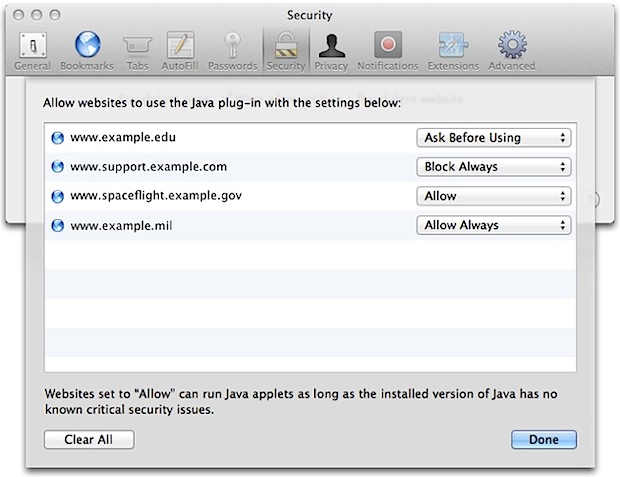



No word on porting the Java plug-in to use the Native Client. Oracle, the makers of Java, plans to deprecate the Java browser plugin in Java 1.9, and to discontinue. Among others, they suggest switching to Firefox, IE or Safari. Update. After the publishing of this article, Oracle has provided instructions on using Java on Chrome 42. We have not heard of any plans from Oracle or Microsoft intending to port their plug-ins to use Chrome’s Native Client. Nonetheless, Mozilla mentions on their developer site that “plug-ins are now a legacy technology” and advises website developers to “avoid using plugins wherever possible”. NPAPI is still used by several Mozilla projects, including Firefox, and Apple’s Safari. As it says in the folder name, /Library/Internet Plug-Ins/ugin/Contents/Home/bin/java is actually an internet plug-in which is most. This solution will work until September when support for NPAPI will be completely removed from Chrome.
#Java plug in update for mac mac os
Mac OS and Windows users can enable NPAPI through its flag on the chrome://flags/ page, and enterprise administrators are still able to whitelist related plug-ins through the EnabledPlugins policy list. Now, the NPAPI itself is disabled, and the plug-ins using it no longer appear on the chrome://plugins/ page. In January 2015, the respective plug-ins were blocked by default, but the user could enable them for specific websites. NPAPI plug-ins were blocked since January 2014, but some of the popular ones were whitelisted, including Java, Unity, Silverlight, Facebook Video, and a couple of others. The reason is that NPAPI “has become a leading cause of hangs, crashes, security incidents, and code complexity” and the intent was first announced in 2013. As outlined in the NPAPI Deprecation Guide, Chrome 42, which was due this month and was recently released to the stable channel, has disabled support for the Netscape Plug-in API.


 0 kommentar(er)
0 kommentar(er)
